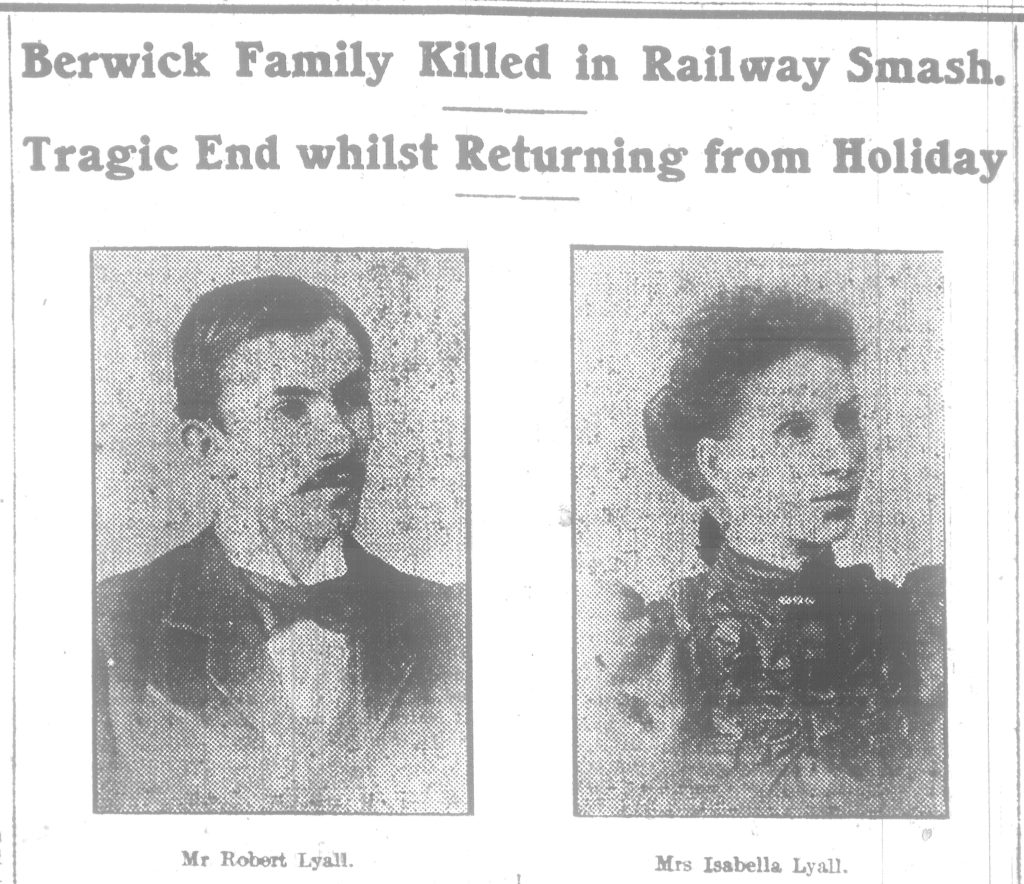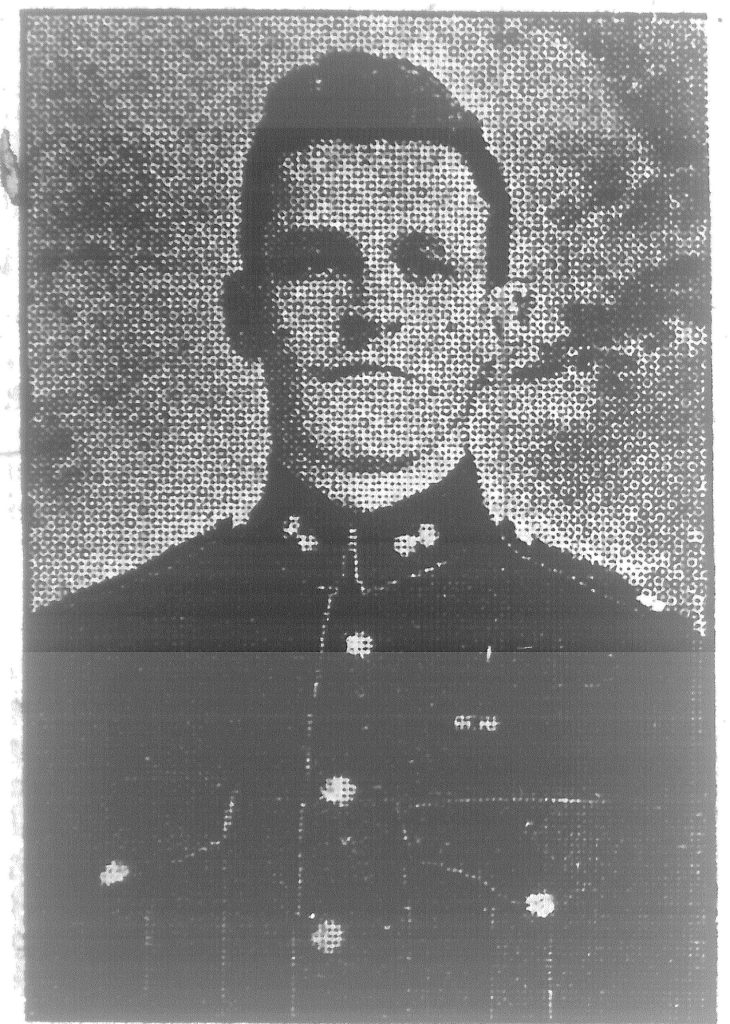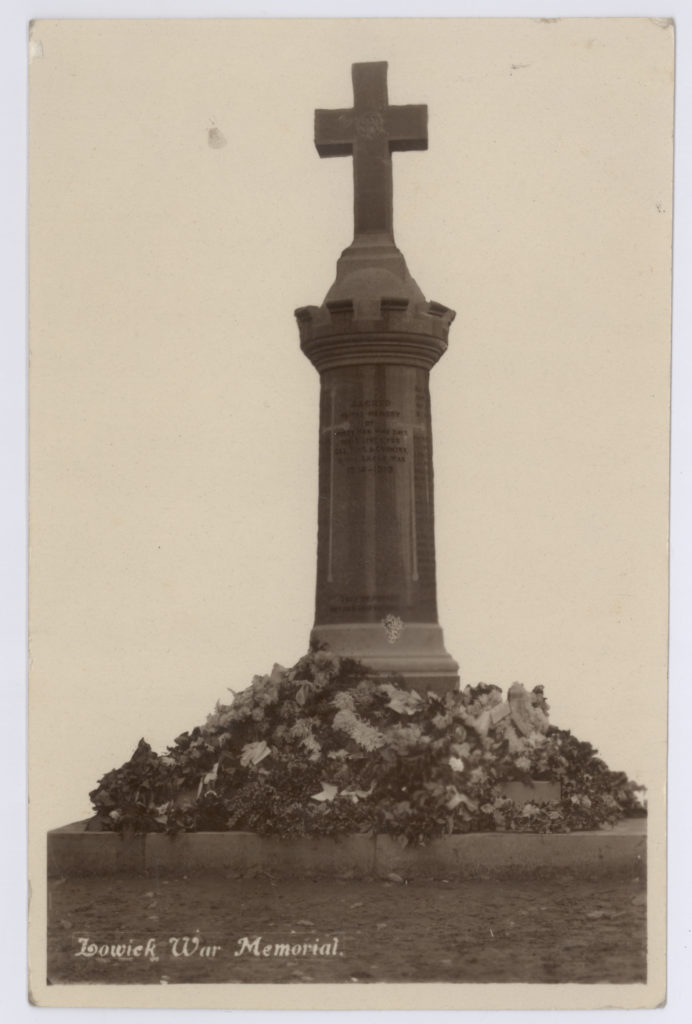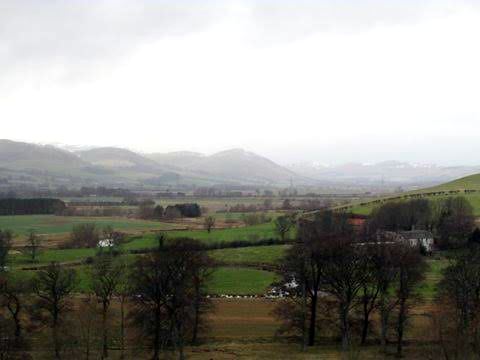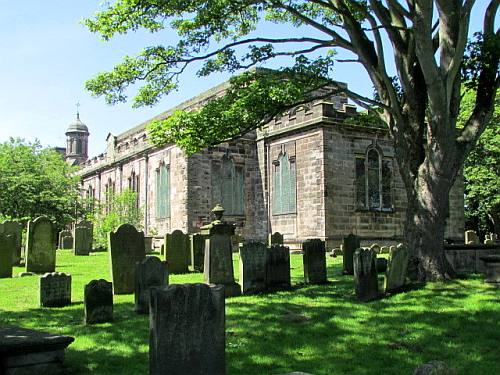BERWICK ADVERTISER, 12 JANUARY 1917
LOCAL NEWS
New Year’s Day at the Workhouse. – A tea, consisting of hot pies, bread and butter, and cake, given by the Guardians to the inmates, was very greatly appreciated. The tea was followed by the distribution of tobacco, fruit, and sweets. Mrs Willits, Miss Henderson, and Mr A.D. Watt were present. Mrs Willits and Miss Henderson expressed the pleasure it gave them to see the inmates enjoying themselves, and also expressed the hope that they would all have a brighter and happier year than had been possible for some time past.
SERGEANT- AT- MACE’S LOSS
Continuing, the Mayor said – That is not the only reference of the kind I have to make this evening. An old official of this Corporation, Mr James Johnston, Sergeant-at-Mace, has been passing through deep sorrow during these past days, owing to the loss which he has sustained in the death of his youngest son in the Military Hospital at Catterick Camp. Private Thomas Marshall Johnston of the Scottish Rifles, who was well known in Berwick and much esteemed, joined the Colours only in April last, so that his military career was a brief one. He bore a high character in his regiment. He was under orders to embark for Egypt when seized with the serious illness which terminated fatally on the 27th ult.
I think I can assure Mr and Mrs Johnston of the sincere sympathy of every member of this Authority in this time of sorrow and bereavement. I should like to couple with this an expression of our sincere gratification at the fortunate escape from death of their daughter and son-in-law (Mr and Mrs Ferguson), who, having been in Berwick in connection with the funeral of the deceased soldier, were travelling to Glasgow in the train which met with the disaster at Ratho on Wednesday last. In that ill-fated train may I say that Mr and Mrs Lyall of Glasgow, with whom Private Johnston stayed for over ten years, were also travelling home. They were both killed, along with two of their children, the other two, being seriously injured, are now lying in the Infirmary. Mrs Lyall (who was a Miss Hepburn), is a native of Berwick. Our sincere sympathy goes out to the relatives of both the deceased in the sad calamity that has befallen them.
HOLY ISLAND
Lifeboat Supper and Presentation – A supper was given in the schoolroom at Holy Island on Wednesday evening to the lifeboat crews, the rocket lifesaving company, and the coast watchers. The Vicar, the Rev. Irvine Cranshaw, presided. Mr Joseph Shell proposed the Lifeboat Institution, including the Holy Island branch. This was responded to by Coxswain Cromary(sic), who referred to the fact that the lifeboat had been called out for service eleven times during the year, resulting in the rescue of 59 lives. Mr T. Kyle proposed the toast of the rocket lifesaving company and the coast watchers, which was responded to by Mr Ben Kyle.
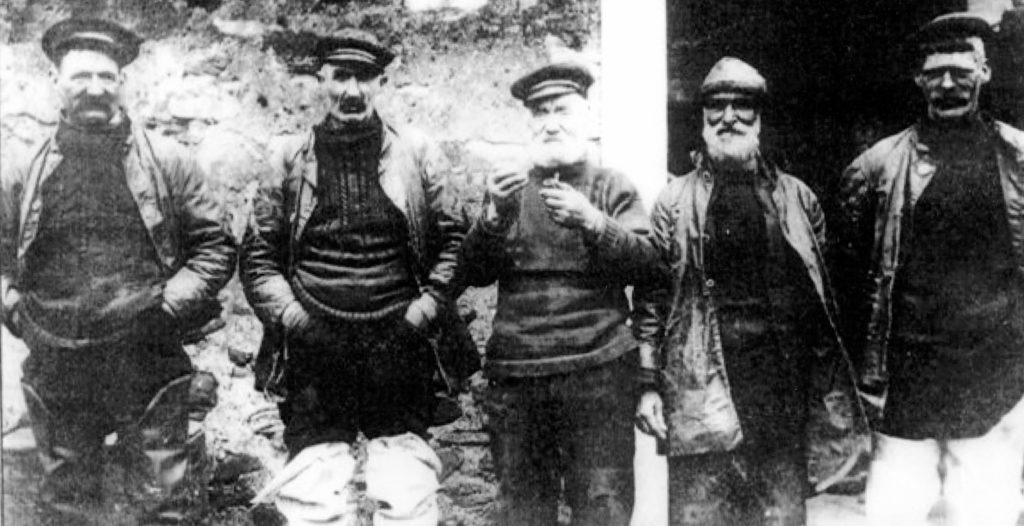
After supper the public were admitted for the presenting of a silver medal to Coxswain Cromarty, a pleasing sequel to the rescue of the crew of the barque Jolani. Mr Robertson occupied the chair, and called upon the secretary to read a communication from the Lifeboat Institution, from which the following are extracts: “The Committee of Management are of opinion that was a specially fine service, carried out in a hurricane, in a heavy sea, amid driving rain and very rough weather.” “The Committee of Management decided to mark their appreciation of this fine service by the following awards – To George Cromarty, coxswain, the silver medal of the Institution, and the thanks inscribed on vellum. To Thomas Kyle, second coxswain, the thanks of the Institution on vellum. To the two coxswains and to each member of the crew an additional award of £1.”
In pinning the medal on Coxswain Cromarty, Miss Carlyn Crawshaw, the young daughter of the Vicar, said – Mr Cromarty, – I am glad you have been awarded the silver medal by the Royal National Lifeboat Institution, because you and your crew have deserved it, and I am pleased to have the honour of pinning this medal on the breast of a very brave man. I hope you will live a long time to wear it.
HONOUR FOR TWEEDMOUTH SOLDIER
We are pleased to learn that Rough-Riding Sgt. Matthew Burke, Royal Field Artillery, who is married to a grand-daughter of the late Mr Patrick Davis, of West Street, Berwick, has been awarded 4th Class Order of St. George from the Czar of Russia for conspicuous service on the battlefield in France. He has also been recommended for a Serbian Order. When he was Corporal prior to the outbreak of war, he was a prominent Fencing Instructor to the troops. He has seen considerable service on several fronts, and is a well-known and popular figure in the Borough. Sergeant Burke, who in his early soldiering days was for a long period trumpeter on the Artillery permanent Staff at Berwick, is the son of Mrs Rose Ann Burke, West End, Tweedmouth.
LETTERS TO THE EDITOR
WHY FORGET THE CHILDREN
Sir, – Being a reader of our local paper every week, I have been surprised to see that there was nothing being done to give the children of our brave men a little pleasure. All the other towns have done as much, and surely when Berwick can collect £100 for Foreign Missions they could have a little to spare for charity at home. Owing to the cost of living we are not able to give the children any extras at home this year. Wake up, Berwick, and think of what our men have left behind them to safeguard us all from the foe, and what a pleasure it would be for them to read in the good old “Advertiser” and the pleasure Berwick had given their children. Their hearts would not be so heavy for he loved one’s left behind. A SOLDIER’S WIFE
WHY FORGET OUR BOYS?
Sir, – I observed a short time ago in a north country paper that our local battalion of the Northumberland Fusiliers are in urgent need of socks, and the question which was raised in my mind was, “are we not neglecting our own lads and sending considerable quantities of comforts to a central organisation who distribute these goods to corps who have no connection with the district?” In December I saw the Local Guild of Aid appealing for additional comforts to be sent to the Northern Cyclists Battalion, and I have no doubt by this time a generous public will have seen to it that all wants have been supplied. With all due respect, however, to the Northern Cyclists Battalion, it is a matter of doubt whether they require comforts so much as our lads who are now roughing it on the Somme. I am also informed that local officers attached to corps with no connection with the district, are provided with a generous supply of comforts for their men while our own go without. Surely the Guild of Aid might be able to supply our local lads before entertaining any appeal from outside sources. It is a very laudable practice to be good to all soldiers, but above all, let charity begin at home, and ensure that the needs of Berwick and North Northumberland boys will be supplied not by the needy mother or wife, but by an organisation which derives is strength from the district. “POPERINGHE”


